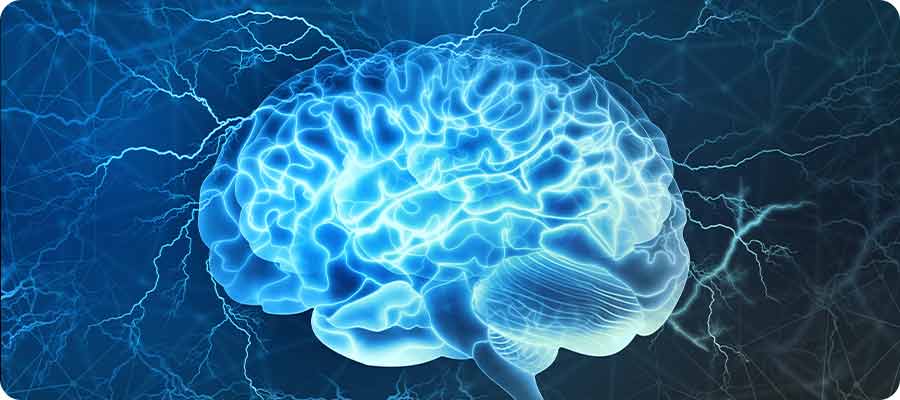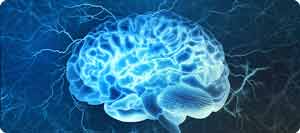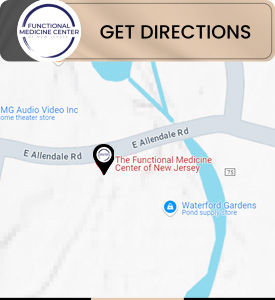Understanding Traumatic Brain Injury (TBI): More Common Than You Think
Traumatic Brain Injury (TBI) is a widespread issue that often goes unrecognized, affecting individuals of all ages through accidents and falls. Learn about its prevalence and the crucial need for awareness and proper management to mitigate long-term effects. Meet Dr. Nicole Anderson MD, FAAP, IFMCP, LLMD, CPAAM, and Dr. Kelly Blundy DC, IFMCP, DNM, at the Functional Medicine Center of New Jersey to learn more about TBI. Contact us for more information or schedule an appointment online. We are conveniently located at 70 East Allendale Rd., Saddle River, NJ 07458.


Traumatic Brain Injuries (TBI) can affect anyone, from athletes on the field to individuals in everyday accidents. These injuries are more common than many realize, impacting millions worldwide each year and leaving a trail of symptoms that can significantly reduce the quality of life.
Different Types of TBI: A Comprehensive Look
TBI isn’t a one-size-fits-all condition. It encompasses a variety of injuries, each with its own set of challenges:
- Concussions: Often referred to as mild TBIs, result from a direct blow to the head or sudden acceleration/deceleration. They can lead to headaches, dizziness, and difficulty concentrating.
- Contusions: These are bruises on the brain tissue, often caused by a direct impact. Symptoms may include cognitive changes, mood disturbances, and localized neurological deficits.
- Penetrating Injuries: Occur when an object pierces the skull, leading to significant brain damage. These injuries often result in severe neurological deficits and require immediate medical attention.
- Diffuse Axonal Injuries (DAI): Resulting from rapid rotational movements, DAIs cause widespread brain cell damage. Symptoms can range from loss of consciousness to severe cognitive impairments.
- Second Impact Syndrome: This occurs when a second concussion is sustained before the first has fully healed, leading to rapid brain swelling and potentially fatal outcomes.
Recognizing the Signs: Short and Long-Term Symptoms of TBI
The symptoms of TBI can be as varied as the injuries themselves, and they can manifest immediately or develop over time:
- Short-term symptoms: Headaches, dizziness, nausea, blurred vision, sensitivity to light/noise, memory loss, confusion, and mood swings.
- Long-term symptoms: Persistent headaches, cognitive impairments (such as memory loss and difficulty concentrating), mood disorders (including anxiety and depression), sleep disturbances, chronic pain, and balance issues.
The Brain’s Language: Understanding Brain Waves
The brain communicates through electrical impulses known as brain waves, each associated with different states of consciousness and cognitive functions:
- Delta Waves (0.5-4 Hz): Associated with deep sleep and restorative healing. These waves are crucial for physical recovery and immune function.
- Theta Waves (4-8 Hz): Linked to light sleep and deep relaxation. Theta waves are essential for emotional processing and memory consolidation.
- Alpha Waves (8-12 Hz): Reflect a calm, relaxed state. Alpha waves are important for creativity and stress reduction.
- Beta Waves (12-30 Hz): Represent an alert and focused mind. Beta waves are necessary for problem-solving and active thinking.
- Gamma Waves (30-100 Hz): Involved in high-level information processing and cognitive functioning. Gamma waves play a role in perception, consciousness, and learning.
The Importance of Early Treatment: Research and Statistics
Research consistently shows that early intervention is key to successful TBI recovery. Delayed treatment can lead to more severe and prolonged symptoms, making it harder for the brain to heal. For instance:
- Neuroendocrine/hormonal deficiencies: Studies have shown that anywhere from 23% -34% of mild TBI/ concussion patients develop hormonal deficiencies within the first year after an accident. These deficiencies include a reduction in adrenal hormones, thyroid hormones, sex hormones and growth hormone. Early identification of these deficiencies and timely treatment may reduce ongoing physical, cognitive and and emotional symptoms.
- Studies on HBOT: Research has demonstrated that Hyperbaric Oxygen Therapy (HBOT) can significantly reduce inflammation and promote neurogenesis (the growth of new brain cells), particularly when administered soon after injury. Early HBOT has been shown to improve outcomes in patients with moderate to severe TBI, enhancing cognitive function and reducing post-concussion symptoms.
- Neurofeedback Efficacy: Neurofeedback has been proven effective in retraining the brain after a TBI, particularly when started early. Studies show that patients who undergo neurofeedback soon after injury experience faster recovery in cognitive and emotional regulation.
- Statistics to Consider: According to the CDC, approximately 2.8 million TBI-related emergency department visits, hospitalizations, and deaths occur annually in the United States. Early treatment can reduce the likelihood of long-term disability by up to 50%.
Our Cutting-Edge Modalities: Healing That’s More Than Skin-Deep
- Hard Chamber Hyperbaric Oxygen Therapy (HBOT): Dive deep into healing with our state-of-the-art hard chamber HBOT. This powerful therapy floods your brain with oxygen, promoting cellular repair and reducing inflammation. It’s not just about recovery; it’s about unlocking the brain’s potential to heal itself.
- QEEG/Neurofeedback: Imagine your brain like a symphony—sometimes it just needs a little tuning to play perfectly. Our QEEG and Neurofeedback therapies provide real-time insights into your brain’s activity, allowing us to create tailored sessions that guide your brain back to optimal performance. Whether you’re dealing with cognitive fog or emotional imbalances, Neurofeedback helps restore harmony.
- Functional Medicine: At Functional Medicine Center of New Jersey, we combine advanced diagnostics with personalized care to create a comprehensive roadmap to recovery that addresses your unique needs. Our Functional Medicine approach considers your overall health, diet, stress levels, and lifestyle to support optimal brain function and long-term healing.
Why Functional Medicine Center of New Jersey? Because We Don’t Just Treat, We Transform
At Functional Medicine Center of New Jersey, we believe that the brain’s ability to heal and regenerate is nothing short of extraordinary. Our comprehensive approach to TBI care not only addresses symptoms but also works to reverse damage and prevent future injuries. We take pride in offering therapies that are scientifically proven yet far from the standard playbook. Your journey with us is about more than just recovery—it’s about reclaiming your life and thriving. Discover a place where innovative care meets compassionate support. At Functional Medicine Center of New Jersey, we invite you to tour our facility, meet our expert team, and see firsthand how our holistic approach to brain health can make a difference in your life. Whether you’re battling the lingering effects of a TBI or simply looking to optimize your cognitive health, we’re here to guide you every step of the way. For more information, contact us or schedule an appointment online. We are conveniently located at 70 East Allendale Rd., Saddle River, NJ 07458. We serve patients from Saddle River NJ, Wyckoff NJ, Ramsey NJ, Montvale NJ, Paramus NJ, Franklin Lakes NJ, Waldwick NJ, and surrounding areas.

Additional Services You May Need

Additional Services You May Need


